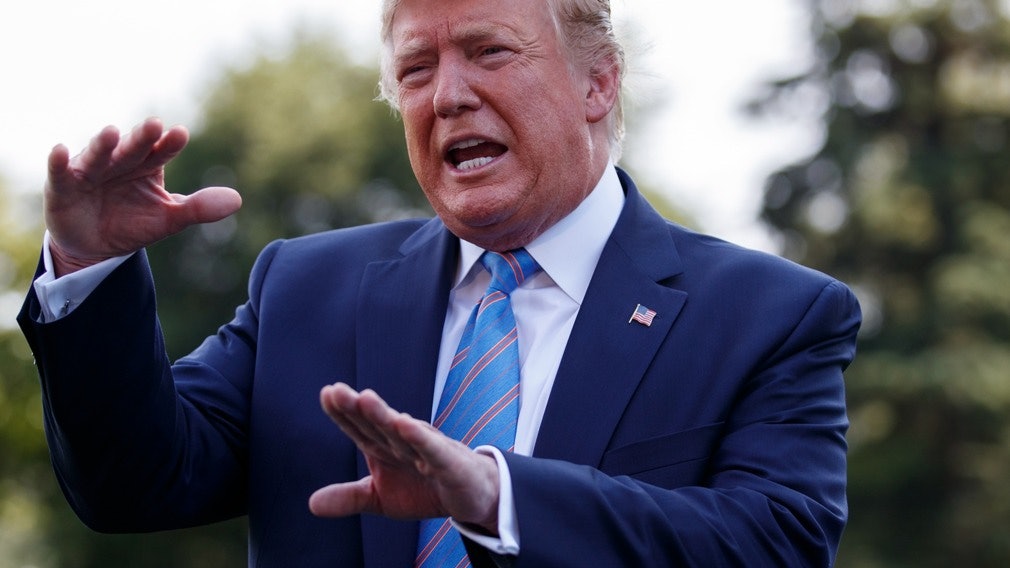On August 28th, a coalition of more than 160 American business organizations sent a letter to ask President Trump to postpone all tariff increases on Chinese goods. This batch of tariffs will take effect as early as September 1.
The China-US trade war has continued, and there seems to be no sign of stopping. In the next few months, China and the United States will continue to levy tariffs. The United States will impose a 15% tariff on goods valued at $300 billion on September 1. The other 250 billion Chinese goods of 25% tariff will also rise to 30% on October 1. For the 5,078 tax items originating from the United States and about 75 billion US dollars of goods, the Ministry of Commerce of China also announced on August 16 that it will impose 10% and 5% tariffs in two batches from September 1 and December 2019. Implemented on the 15th.
The war in trade is fierce, and Trump, who seems to be fearless, is actually under considerable pressure in the country. It is reported that affected by China-US economic and trade frictions, the gross domestic product of the United States in 2019 and the next four years will likely reduce by 64 billion to 91 billion US dollars annually, accounting for 0.3% to 0.5% of the total US gross domestic product. The three major US stock indexes (August) fell for the fourth consecutive week, and the US bond yield curve was upside down, showing signs of economic recession.
In such a crisis, American companies have been swaying the White House, and the overall view is divided into two major ways.
The first one wrote a letter to the White House to persuade Trump. After Trump imposed tariffs on China in 2018, the American business community began to write to Trump.
Nearly 150 industry associations in the United States (including manufacturers, farmers and agribusiness, retailers, technology companies, service providers, natural gas and oil companies, importers, exporters, etc.) wrote to the US President on November 27, 2018 Donald Trump urged it to resolve trade disputes with China. 2. Revoke the tariffs imposed on China and waive the plan to implement further tariff escalation measures.
Four US technology companies, Dell, Intel, Hewlett-Packard and Microsoft, issued a joint statement to issue tariffs and sent an e-mail to the US Trade Representative Office (USTR) requesting USTR to take the notebook from the final tariff list. Removed.
The American Retail Industry Leaders Association also gave Trump an open letter in December 2018. According to the letter, more than 41% of apparel, 72% of footwear and 84% of daily necessities in the United States are produced in China. “The tariff on these products will be taxed for every American.”
The second is when asked for Trump. After Trump announced the ban on Huawei, major US technology companies began to “protest” to Trump.
Google, Qualcomm, Cisco, Intel, Micron, Western Digital, and Broadcom executives met with Trump in July to discuss the government’s ban on Huawei. And economic and trade relations with China. It is reported that during the meeting, the above-mentioned technology companies continued to urge the Trump administration to implement Trump’s commitment to relax the ban on Huawei chips and other technologies.
Apple Chief Executive Cook met with Trump at a dinner party in August and warned him that tariffs on China could hurt the company’s interests.
Whether it’s writing a letter to the White House or complaining about Trump’s request, the US companies have different approaches, but with the same purpose: putting pressure on the Trump administration to preserve their corporate interests. The above data is sufficient to show that Trump’s move to impose tariffs on China has caused major US businessmen to anticipate or taste the impact of “loss of interest”. In the face of such a crisis, American companies will never sit still.
People familiar with American politics know that although business enterprises do not have administrative power, the “revolving door” between business and government is a fusion of power and interests between the two parties. Under the revolving door, major companies lobby for the government to protect their own interests. At different times and occasions, their lobbying behavior has a huge influence on the government’s decision-making, and sometimes even plays a leading role.
But from the standpoint of the United States, this role has also withdrawn Trump’s “back legs.” As is known to all, the trade war is to kill the enemy with a double-edged sword and damage it by 800. While attacking China, the interests of its own enterprises will be greatly lost. This also means that Trump is not without worries when he is “competing” with China. He must take into account the feelings and interests of major companies, which to some extent hampers the decision of the Trump administration in the trade war.












